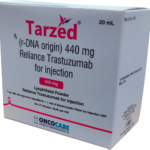SEC recommendation for Tecentriq for metastatic Urothelial Cancer is a step in the right direction. Metastatic Urothelial Cancer (mUC) is an aggressive form of bladder cancer and one amongst the 10 most common cancers in the world that contributes 3.4% to the global cancer burden.


Metastatic Urothelial Cancer (mUC) is an aggressive form of bladder cancer and one amongst the 10 most common cancers in the world that contributes 3.4% to the global cancer burden[1]. While mUC is a serious disease, it is also difficult to cure. With the advent of immunotherapy, adjuvants, antibody-drug conjugates and use of targeted agents, there has been an improvement in survival rates.
Tecentriq, is a prescription medicine used to treat adults with mUC, when the bladder cancer has spread or cannot be removed by surgery. With treatment largely being limited to palliative rather than curative care, they have also been associated with high toxicity and low response rates. This type of cancer also carries high mutational complexity with the potential for many neo-antigens. Hence, immunotherapy is often regarded as the best form of care.
Recently, the Subject Expert Committee (SEC) of Central Drugs Standard Control Organization (CDSCO) has recommended that there is no objection for change in indication of Tecentriq in locally advanced or metastatic Urothelial Carcinoma indication, in line with US FDA (Food and Drug Administration) approvals. This is a promising development for the cancer patients in India.
Commenting on the same, Dr. Sudhir Rawal, Medical Director, Chief Uro-Oncology, Rajiv Gandhi Cancer Institute and Research Centre (RGCIRC) said, “Given the limited awareness of the disease, Metastatic Urothelial Cancer (mUC) is usually detected in late stages. This type of cancer has high mutational complexity and hence responds better to the use of immunotherapy and targeted drugs. The recent decision by SEC is welcome move and brings immense hope for cancer patients in India as it enables us to continue having an immunotherapy option to treat/manage mUC. It can help improve the longevity and quality of life for people suffering from mUC.”
Why is mUC a concern?
mUC is not only the most common types of bladder cancer but also carries a high rate of recurrence. Findings from Globocan 2018 suggest that there are over half a million new bladder cancer cases and around two lakh deaths are recorded. Metastatic bladder cancer, which also spreads to other organs, is prevalent in India as well. Over 19,000 new cases and 10,000 deaths have been recorded annually in the country.[2]
Also Read: Warning Signs of Prostate Cancer
[2] https://www.ncbi.nlm.nih.gov/pmc/articles/PMC7151633/











